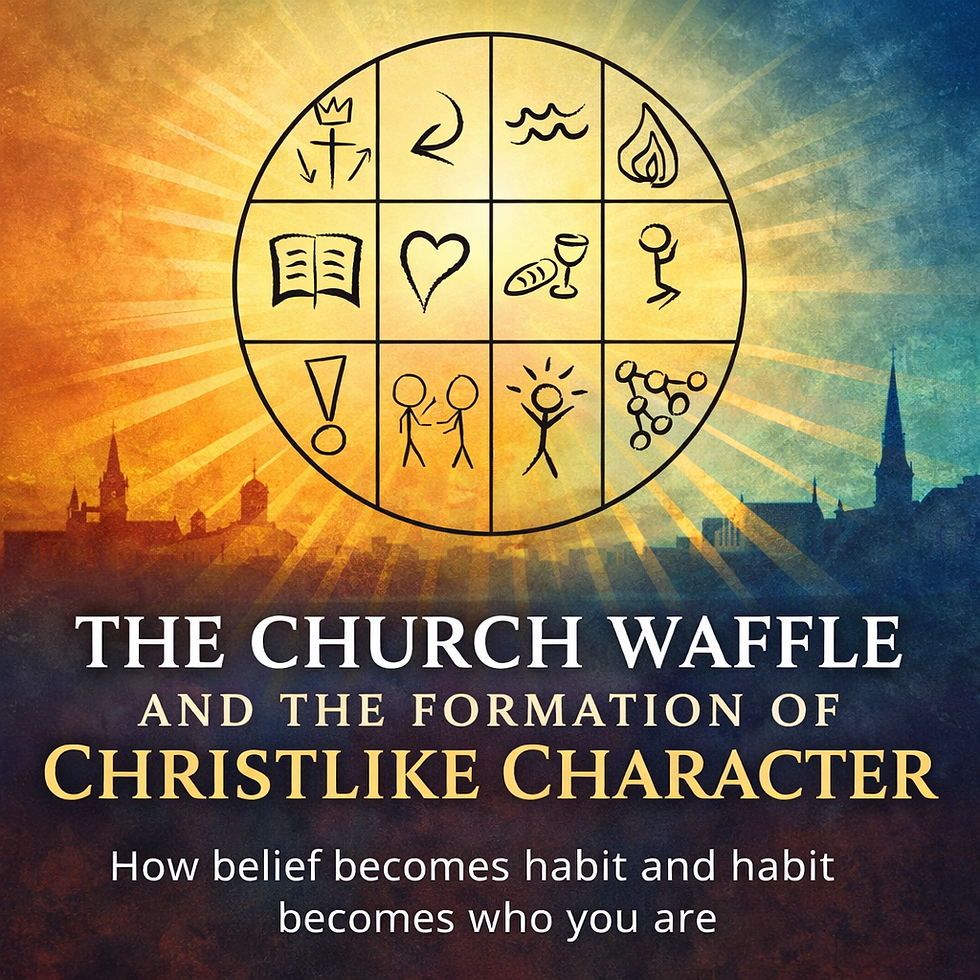The Crucible of Leadership: Forming Wine, Not Just Fruit
- Dave Miller

- May 21, 2025
- 3 min read
by Dave Miller

There’s a moment in every movement when energy alone is no longer enough. Zeal must mature into wisdom, and fruit must ferment into wine. This is the essence of what we call the Crucible—the refining fire where leaders are not only called but formed. The Constituent and Winskin Principles describe what that process demands and what it must produce.
The Constituent Principle: The Forge of Ownership
At the center of the Crucible is a simple but powerful idea:
Committed bands, with entrusted authority, taking ownership of a reasonable target—together—until God creates a servant leadership in head, heart, and hands who takes responsibility as their own.
This isn’t leadership by accident or appointment—it’s leadership forged in responsibility. It’s a group of people who say, “We will own this, together.” Not in competition, but in covenant. They don’t just show up; they take hold of the mission.
In the language of leadership development, this is where community and ownership meet. We aren’t merely forming individuals with impressive skills or gifted personalities. We’re cultivating servant leaders whose minds are wise, whose hearts are humble, and whose hands are calloused from the work.
It’s why we don’t start with hierarchy—we start with shared commitment to a target. The mission is not hypothetical. It’s not abstract. It’s reasonable, visible, and collectively owned. It’s here in the crucible that individuals become bands—and bands become movements.
The Winskin Principle: From Fruit to Wine
Jesus warned that new wine can’t go into old wineskins (Matthew 9:14–17). Why? Because wine expands as it matures—and old structures can’t hold that kind of life. The same is true of leadership: you can’t pour new leaders into old frameworks and expect lasting transformation.
We must turn our fruit into fine wine.
Fruit is good—but it’s not the goal. We’re not after short bursts of activity or temporary success. We’re after fermentation, maturation, and multiplication. We want wine that can be poured out over time—not grapes that spoil after the harvest.
Jesus ends that passage by showing us the why: “The harvest is abundant, but the workers are few… pray to the Lord of the harvest to send out workers.” (Matthew 9:35–38). The fruit of the harvest must be matured into workers for the next season. That’s what the Crucible does. That’s what new wineskins are for.
The Winskin Principle calls us to create fresh leadership bands (new wine), covenanted together in mission (new wineskins), committed to staying with hands on the plow until local leadership arises, matures, and takes ownership.
From Zeal to Virtue: The Fire That Forms
Creating these leaders requires more than vision. It takes virtue—and virtue can’t be downloaded. It must be forged in the context of a crucible:
A crucible of hardship that reveals character.
A crucible of community that shapes commitment.
A crucible of clarity that refines calling.
These fires are not accidental. They’re intentional. The early stages of leadership may be marked by energy and charisma, but over time, the work of God in the leader’s character is what allows that influence to endure. That’s why we say:
Zeal is the spark. Virtue is the flame.
Without the formation of virtue—through pain, perseverance, and community—we get leaders who burn out or blow up. But through the crucible, God forms people of conviction, humility, courage, and endurance.
Together Until the Transfer
There’s a crucial phrase in the Constituent Principle that should not be overlooked: “until God creates…”
We don’t move on too quickly.
We don’t abandon the field at the first sign of difficulty.
We stay until God raises up local leaders with head, heart, and hands aligned to His purposes.
This is the “together” of crucible leadership. It’s not rugged individualism—it’s mutual submission in mission. It’s leadership that is both decentralized and deeply relational.
The wineskin isn’t just the structure—it’s the shared culture, covenant, and clarity of purpose that can hold the expansion of God’s work. The wine isn’t just people—it’s people shaped into mature leadership, with the ability to multiply that leadership in others.
The Takeaway: Don’t Rush the Wine
Don’t settle for fruit. Don’t rush the process. Don’t look for shortcuts to maturity.
If we want enduring, multiplying leaders who walk in the way of Jesus, we must embrace the crucible. We must form bands of committed people who carry entrusted authority, take responsibility, and labor together in virtue until God raises up leaders from the inside.
That is the Constituent of the Crucible.
That is the Winskin Principle.
That is how fruit becomes fine wine.





Comments